SRP Funding Opportunities Webinar
Archived: Monday, May 15, 2023
Sponsored by: NIEHS Superfund Research Program
The Superfund Research Program (SRP) is holding a webinar to provide information about the new "Superfund Hazardous Substance Research and Training Program (P42)" funding opportunity, RFA-ES-23-001. The new RFA was released on April 17, 2023, and the application deadline is October 2, 2023.
On the webinar, NIEHS staff will provide information and answer questions about the P42 request for application (RFA) to address the broad, complex health and environmental issues that arise from the multimedia nature of hazardous waste sites. SRP Center grants support problem-based, solution-oriented research Centers that consist of multiple, integrated projects representing both the biomedical and environmental science disciplines. The Center cores are tasked with administrative, community engagement, research translation, research support, and training functions.
The webinar will also focus on changes from previous solicitations. For more information about the RFA, see the SRP Funding Opportunities for Multiproject Center Grants page.
Please note that the slides available for download were revised after the live session on May 15, 2023.
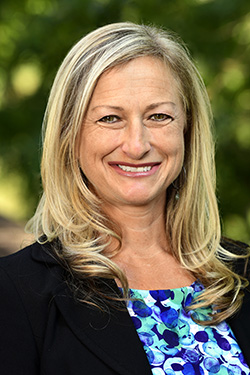 Heather F. Henry, Ph.D., Program Administrator, NIEHS Superfund Research Program (heather.henry@nih.gov)
Heather F. Henry, Ph.D., Program Administrator, NIEHS Superfund Research Program (heather.henry@nih.gov)
Heather Henry, Ph.D., is a health science administrator for the NIEHS where she oversees Superfund Research Program (SRP) grants that spans human health toxicology, risk assessment, detection technologies and remediation approaches. She provides guidance to potential applicants for SRP’s Multiproject Center Grants (P42s), Individual Research Grants (R01s), Small
Business / Technology Transfer Grants (R41-44; SBIR/STTR), and Conference Grants (R13). Heather studied plant-based environmental remediation
(phytoremediation) and ecological restoration as part of her doctoral work at the University of Cincinnati and as a Fulbright Postdoctoral Fellow at the University of Melbourne and University of Adelaide in Australia. She has been with NIEHS since 2006.
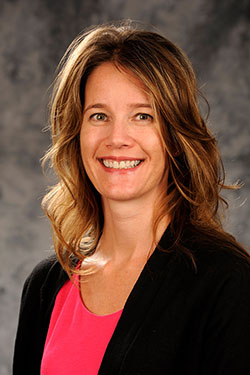 Michelle L. Heacock, Ph.D., NIEHS Superfund Research Program (heacockm@niehs.nih.gov)
Michelle L. Heacock, Ph.D., NIEHS Superfund Research Program (heacockm@niehs.nih.gov)
Michelle Heacock, Ph.D., serves as the chief of the Hazardous Substances Research Branch, and is a health science administrator where she oversees Superfund Research Program (SRP) grants that span basic molecular mechanisms of biological responses from exposures to hazardous substances, movement of hazardous substances through environmental media, detection technologies, and remediation approaches. Dr. Heacock received her doctorate from Texas A&M University for her work on the interplay between DNA repair proteins and telomeres. Her postdoctoral work was conducted at NIEHS where she studied the DNA repair pathway, base excision repair. She has been with the NIEHS since 2007.
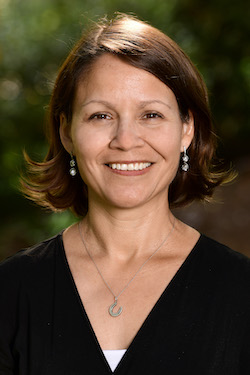 Danielle J. Carlin, Ph.D., D.A.B.T., NIEHS Superfund Research Program (danielle.carlin@nih.gov)
Danielle J. Carlin, Ph.D., D.A.B.T., NIEHS Superfund Research Program (danielle.carlin@nih.gov)
Danielle Carlin, Ph.D., D.A.B.T., is a health scientist administrator with the NIEHS Superfund Research Program (SRP). Her position consists of providing guidance and advice to grantees applying for SRP Center grants and serving as the lead liaison between SRP trainees and the various training opportunities offered by SRP. Her current research interests include chemical mixtures, combined exposures, metals, asbestos, and xenobiotic metabolism. Dr. Carlin conducted her postdoctoral training at the University of North Carolina, where she first studied aerosolized drugs/vaccines for treatment and prevention of tuberculosis for two years and then focused on the toxicological effects of exposure to Libby amphibole asbestos in the rat model. She received her Ph.D. in 2005 from Kansas State University, College of Veterinary Medicine, Department of Anatomy and Physiology. She also has a B.S. and M.S. in animal science from New Mexico State University.
 Varsha Shukla, Scientific Review Officer, Scientific Review Branch, National Institute of Environmental Health Sciences (varsha.shukla@nih.gov)
Varsha Shukla, Scientific Review Officer, Scientific Review Branch, National Institute of Environmental Health Sciences (varsha.shukla@nih.gov)
Varsha Shukla, Ph.D. is a Scientific Review Officer (SRO) in the Division of Extramural Research and Training at the National Institute of Environmental Health Sciences (NIEHS), where she helps with conducting the initial administrative, scientific, and technical review of research grant applications assigned to the NIEHS before forwarding them to review committees or special emphasis panels for detailed scientific peer review. She is also responsible for preparing summary statements of review committee evaluations and recommendations.
 Jenny L. Greer, Branch Chief, Grants Management Officer, Grants Management Branch, National Institute of Environmental Health Sciences (jenny.greer@nih.gov)
Jenny L. Greer, Branch Chief, Grants Management Officer, Grants Management Branch, National Institute of Environmental Health Sciences (jenny.greer@nih.gov)
Jenny Greer is the Chief Grants Management Officer and the Chief of the Grants Management Branch at NIEHS. Prior to joining NIEHS, Jenny was a Lead Grants Management Specialist at the National Institute of Allergy and Infectious Diseases, where she managed a large portfolio of highly complex grants, served as a resource and mentor to junior grants management specialists, provided training for new staff and for grantees, and coordinated several large funding initiatives. Previously, Jenny worked as a Grants Management Specialist at the U.S. Department of Agriculture in the Specialty Crop Block Grant Program. Before joining the federal workforce, Jenny spent about 12 years in the nonprofit sector – serving as the Deputy Executive Director of the National Peace Foundation, a Program Manager at Kidsave International, and a Program Manager of Commercialization Grants at the U.S. Civilian Research and Development Foundation. Jenny holds a Master’s degree in Russian, Eurasian, and East European Studies from Georgetown University, and a Bachelor’s degree in International Relations from Brigham Young University.
Moderator:
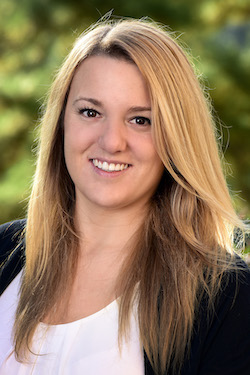 Brittany A. Trottier, Health Specialist, Superfund Research Program, National Institute of Environmental Health Sciences (brittany.trottier@nih.gov)
Brittany A. Trottier, Health Specialist, Superfund Research Program, National Institute of Environmental Health Sciences (brittany.trottier@nih.gov)
Brittany Trottier, M.P.H., is a Health Specialist with the Superfund Research Program (SRP). She provides program analysis and support of SRP activities, supports communication of SRP grantees’ scientific accomplishments, and serves as the lead for SRP community engagement activities. She also oversees the Conference Grant portfolio for SRP and serves as the Program Manager for the KC Donnelly Externship Award Supplement to promote translational and transdisciplinary efforts in graduate and post-doctoral for SRP trainees. She received her Master’s in Public Health from the Milken Institute School of Public Health of The George Washington University in 2017 and has a Bachelor of Arts in Chemistry from Adrian College.
Webinar Slides and References:
Additional Resources:
Help & FAQs
- Frequently Asked Questions
- Content Questions?
Call Brittany Trottier at 919-599-6345 or brittany.trottier@nih.gov - Technical Problems?
Leave us a comment - Cancel Your Registration
- My Participation Records
- CEU Credits and PDHs
Zoom Resources
Before Webinar Day
This seminar will be delivered through Zoom. Participants are encouraged to update to the latest version of the Zoom application for the best experience.
If you are unable to install the Zoom application, most functions will be available if you join just using a modern web browser such as Chrome, Edge or Firefox. We strongly encourage you to run the Zoom Meeting Test prior to attending this webinar. Technical support on the day of the webinar will be very limited and subject to significant delays.
Backup Conference Call
If you cannot participate using online audio, you may join the optional call in line. After checking in for the live event using the instructions listed below, you will see several options to participate. Please click the links in option 4 to follow along by phone and obtain the call in number. If you cannot access the phone number, you may request the call in line from the event moderator in the Q&A or send an email to Jean Balent at balent.jean@epa.gov
Click on "Join Webinar" at the top of this screen, enter your exact first and last name as you registered and enter the number of people attending at your location (including yourself). You should then be taken to the Zoom meeting room. Join with Zoom Application: For those joining with the Zoom application, you may be prompted to sign with a zoom account or join as a guest without signing in.
If joining as a guest, you will be prompted to enter your name and email address. Remember your name, image, video or voice may be visible to others in the live event. When done, click "Join" When it is time for the live event to start, the meeting host will admit you to the live Zoom meeting. Join via web browser (without the Zoom Application): For those joining with a web browser, you may close any pop ups prompting you to download the Zoom app. The next window will allow you to enter your name (first name and last name) and check the box that you are not a robot. Click the blue join button. You may also be asked to provide your email address before joining the room. Remember your name, image, video or voice may be visible to others in the live event. When done, click "Join" When it is time for the live event to start, the meeting host will admit you to the live Zoom meeting. You may need to periodically refresh the browser window to confirm if the host has admitted you. The presenters will control what slide you are viewing. You may submit questions online for the instructors to answer during the webinar by typing in the "Q&A" area. It is not necessary to wait until the question and answer periods to submit questions. At the end of the webinar you will be guided to our feedback form and links to additional resources, including the complete presentation. These links will remain active after the webinar. Provided for your convenience. Importing or accepting the invitation within this iCalendar file is not required, and declining the invitation does not cancel your registration. For additional information on iCalendar, please see our
iCalendar Help It is EPA's policy to make reasonable accommodation to persons with disabilities wishing to participate in the agency's programs and activities, pursuant to the Rehabilitation Act of 1973, 29 U.S.C. 791. Any request for accommodation should be made to Brittany Trottier at 919-599-6345 or brittany.trottier@nih.gov, preferably one week or more in advance of the webinar, so that EPA will have sufficient time to process the request. EPA would welcome specific recommendations from requestors specifying the nature or type of accommodation needed. EPA welcomes specific recommendations from requestors specifying the nature or type of accommodation needed. Please note that CLU-IN provides both alternate phone call-in options and closed captioning for all webinars, and requests for these specific accommodations are not necessary.
Webinar Day, Checking In
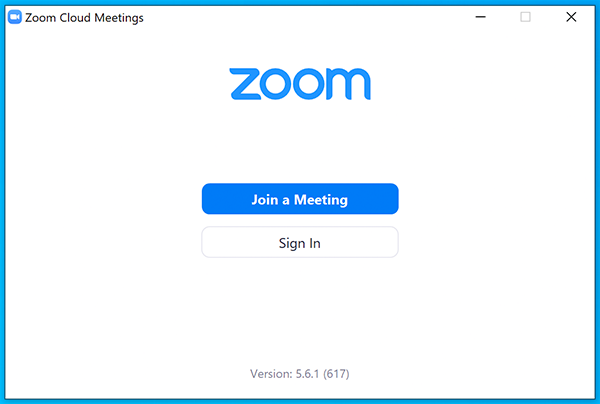
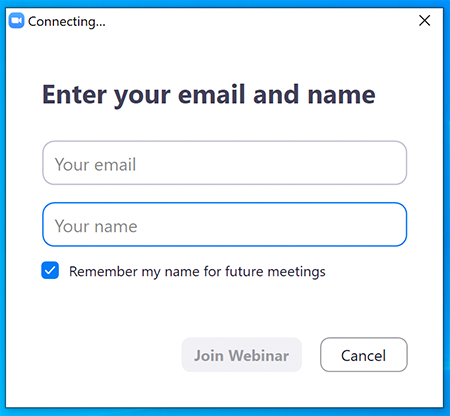
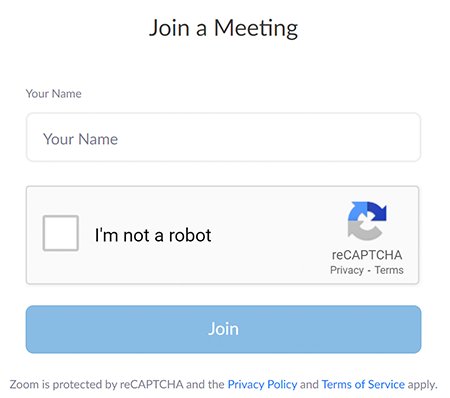
Moving Through Slides
Feedback & Links to Additional Resources
iCalendar File
Rehabilitation Act Notice for Reasonable Accommodation
Rehabilitation Act Notice for Reasonable Accommodation
It is EPA's policy to make reasonable accommodation to persons with disabilities wishing to participate in the agency's programs and activities, pursuant to the Rehabilitation Act of 1973, 29 U.S.C. 791. Any request for accommodation should be made to Brittany Trottier at 919-599-6345 or brittany.trottier@nih.gov, preferably one week or more in advance of the webinar, so that EPA will have sufficient time to process the request. EPA would welcome specific recommendations from requestors specifying the nature or type of accommodation needed. EPA welcomes specific recommendations from requestors specifying the nature or type of accommodation needed. Please note that CLU-IN provides both alternate phone call-in options and closed captioning for all webinars, and requests for these specific accommodations are not necessary.
Webinar Recording
By participating in this CLU-IN webinar, you automatically agree to authorize recording of audio and visual content presented during this live event and consent to subsequent use of this recording in the public domain by the U.S. Environmental Protection Agency. This recording may include questions, comments and poll responses provided by you during the live event in addition to your name, voice, image or likeness. This recording will be made available after the conclusion of the live event as part of the CLU-IN webinar archives, and will remain available indefinitely. If you do not wish to consent to the recording, please do not join the live event, and contact Jean Balent at 202-566-0832 or balent.jean@epa.gov to discuss your concerns.
Content Disclaimer
This webinar is intended solely to provide information to the public. The views and opinions expressed as part of this webinar do not necessarily state or reflect those of the U.S. Environmental Protection Agency. It is not intended, nor can it be relied upon, to create any rights enforceable by any party in litigation with the United States, or to endorse the use of products or services provided by specific vendors. With respect to this webinar, neither the United States Government nor any of their employees, makes any warranty, express or implied, including the warranties of merchantability and fitness for a particular purpose, or assumes any legal liability or responsibility for the accuracy, completeness, or usefulness of any information, apparatus, product, or process disclosed, or represents that its use would not infringe privately owned rights.

